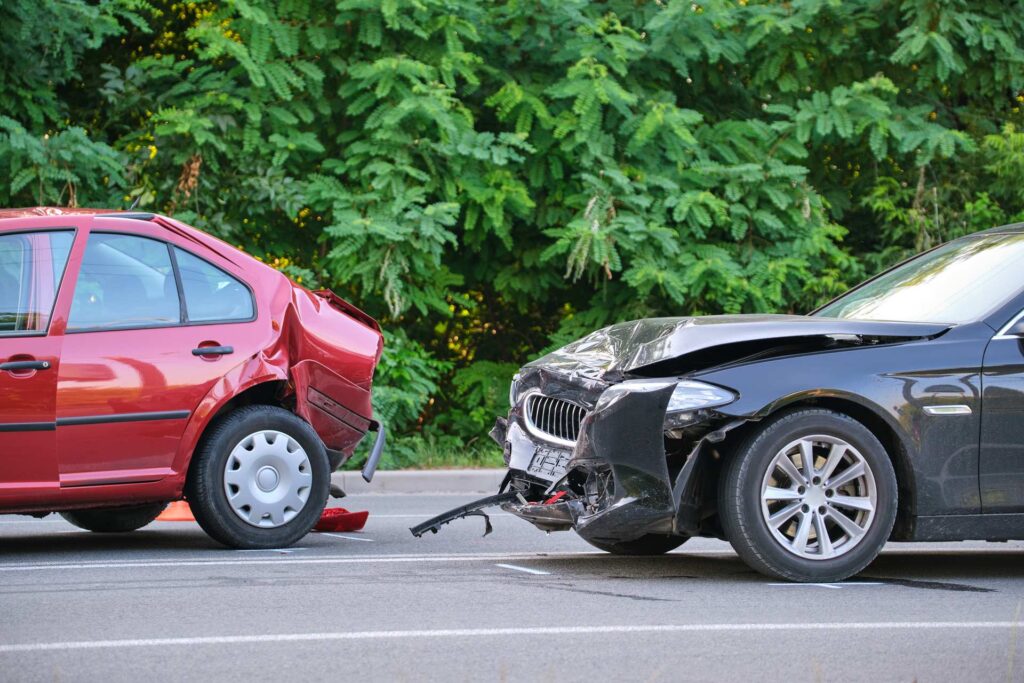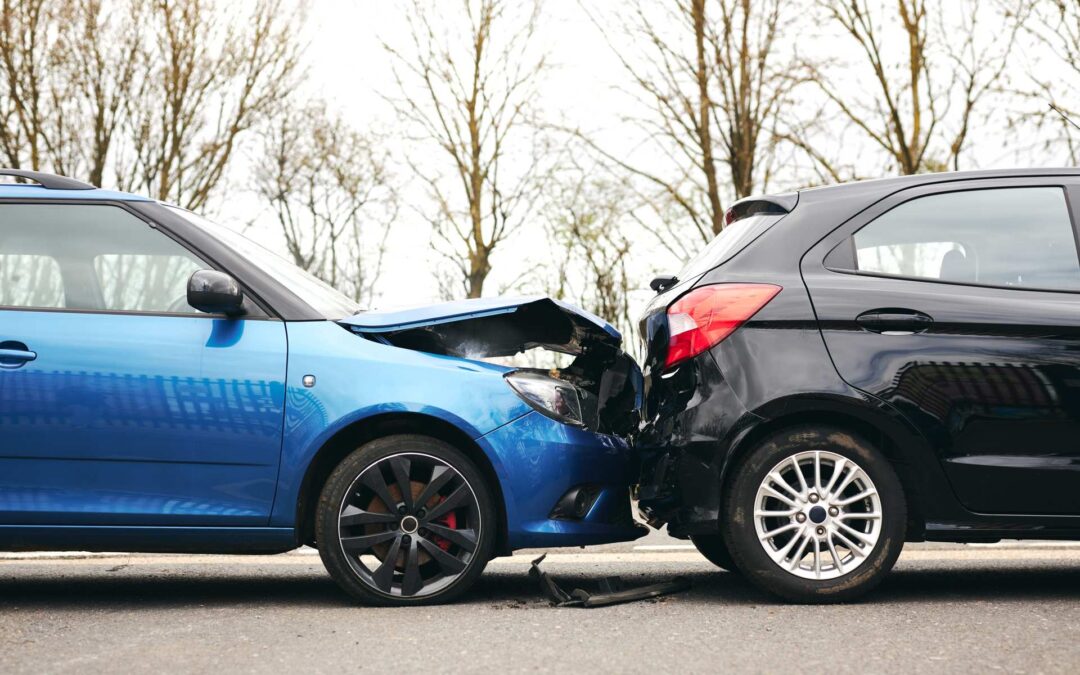In Georgia, navigating the aftermath of rear end collisions involve understanding specific state laws and regulations. These accidents, while common, can lead to complex liability issues and significant legal and financial consequences. This blog aims to guide you through the essentials of rear-end collisions in Georgia, from determining fault to handling insurance claims and seeking legal recourse.
Understanding Rear-end Collisions in Georgia
In Georgia, rear-end collisions are not just common occurrences on the road; they’re incidents laden with legal implications and nuances that can significantly affect the outcome of liability and compensation claims. This section aims to shed light on the intricacies of rear-end collisions within the state, focusing on the legal framework that governs these accidents. From understanding the basic dynamics of such collisions to delving into specific state laws regarding tailgating, this comprehensive overview provides essential insights for drivers navigating the aftermath of a rear-end collision in Georgia. By examining how local laws interpret and address the key factors contributing to these incidents, we equip you with the knowledge needed to understand your rights and responsibilities in the wake of an accident.
The Basics of Rear-end Collisions
Rear-end collisions, where one vehicle crashes into the back of another, are often symptomatic of broader issues on the road, such as distracted driving, tailgating, and abrupt stops. In Georgia, the law takes a nuanced view of these contributing factors, especially when determining liability. Distracted driving, for instance, is increasingly scrutinized under Georgia’s hands-free laws, which prohibit holding a phone or using any part of the body to support a phone while driving. This legal stance underscores the state’s commitment to reducing incidents that could lead to rear-end collisions.
Georgia’s Laws on Tailgating
Tailgating, or following another vehicle too closely, is explicitly addressed in Georgia’s traffic laws. According to O.C.G.A. § 40-6-49, drivers must maintain a “reasonable and prudent” distance from the vehicle ahead, taking into account the speed of vehicles, traffic conditions, and the condition of the highway. This law is a critical factor in determining fault in rear-end collisions, as failing to adhere to it can significantly sway liability against the tailgating driver. Understanding this legal standard is crucial for anyone involved in a rear-end collision in Georgia, as it not only affects the outcome of insurance claims but can also have implications for legal liability and compensation.
By dissecting the dynamics of rear-end collisions and the specific legalities surrounding tailgating in Georgia, drivers can gain a clearer understanding of how fault is determined and what steps can be taken to mitigate the risk of such accidents. This knowledge is not only vital for navigating the immediate aftermath of a collision but also for ensuring that drivers are adequately protected and informed of their legal rights and obligations on the road.
Determining Fault in Georgia
Determining fault in rear-end collisions in Georgia involves navigating a set of legal principles and exceptions that can significantly impact the outcome of insurance claims and legal disputes. The state’s approach to fault in these incidents is grounded in both statutory law and common sense driving practices, emphasizing the responsibility of all drivers to operate their vehicles safely and attentively. This section delves into the nuances of fault determination in Georgia, highlighting the presumption of fault that typically falls on the rear-ending driver and exploring the specific circumstances under which this presumption can be contested.
The Presumption of Fault
In Georgia, as in many jurisdictions, there’s a prevailing presumption that the driver who rear-ends another vehicle is at fault for the collision. This presumption is rooted in the principle that drivers are expected to maintain a safe following distance at all times, allowing adequate space to stop safely without colliding with the vehicle in front. This rule is designed to promote safe driving practices and reduce the frequency of rear-end collisions. However, this presumption of fault is not absolute and can be challenged, opening the door for a more nuanced examination of the circumstances surrounding the accident.
Exceptions to the Rule in Georgia
While the rear driver is typically presumed at fault in rear-end collisions, Georgia law acknowledges several exceptions where this presumption may not apply. These exceptions allow for a more equitable determination of fault, considering the actions of all parties involved in the accident:
- Sudden Lane Changes: If the front driver executes a sudden and unexpected lane change without providing adequate time for the rear driver to adjust, the front driver may be found at fault for the collision.
- Mechanical Failures: If a vehicle’s mechanical failure, such as brake failure, directly contributes to the rear-end collision, fault may be attributed to the vehicle owner or manufacturer, depending on the circumstances surrounding the failure.
- Actions of a Third Vehicle: In some cases, the actions of a third vehicle, such as abruptly cutting off another car, leading it to brake suddenly and be rear-ended by a following vehicle, can shift fault away from the rear driver.

Navigating the Aftermath in Georgia
Navigating the aftermath of a rear-end collision in Georgia involves a series of critical steps. Particularly when it comes to dealing with insurance claims and potential legal actions. The process can be complex, with Georgia’s specific laws and regulations playing a significant role in determining the outcome of claims and disputes. This section aims to provide a clear roadmap for individuals involved in rear-end collisions in Georgia. Offering guidance on the insurance claims process and highlighting key legal considerations that may arise.
Insurance Claims Process in Georgia
Filing an insurance claim in Georgia after a rear-end collision requires a thorough understanding of the state’s insurance laws and the procedures followed by insurance companies. The process typically begins with reporting the accident to your insurance provider as soon as possible. Georgia law mandates that drivers carry minimum amounts of liability insurance, which covers damages to others if you’re at fault in an accident. However, navigating the claims process can be intricate, especially when determining fault is contentious.
When filing a claim, you’ll need to gather and submit all relevant documentation, including police reports, medical records, and evidence of any damages incurred. It’s also crucial to communicate effectively with insurance adjusters, providing detailed information while being cautious not to admit fault prematurely. Georgia’s comparative negligence law may affect your claim, as compensation can be reduced based on your percentage of fault in the accident.
Legal Considerations in Georgia
In some instances, resolving the aftermath of a rear-end collision may extend beyond insurance claims, necessitating legal action. This step becomes particularly relevant when disputes over fault arise or when the compensation offered by insurance companies does not adequately cover the damages and injuries sustained. Engaging with the legal system in Georgia requires a strategic approach, often starting with consulting a personal injury attorney experienced in rear-end collision cases.
Legal action may involve negotiating a fair settlement or, if necessary, taking the case to court. Understanding the statute of limitations for filing a lawsuit in Georgia is critical, as claims must be filed within two years of the accident for personal injuries and four years for property damage. An attorney can help navigate these legal waters, advocating on your behalf to ensure that your rights are protected and that you receive the compensation you deserve.
Conclusion
Rear-end collisions in Georgia present unique challenges and considerations. By understanding the specifics of state laws regarding fault, the nuances of insurance claims, and the potential for legal action, individuals can better navigate the aftermath of these accidents. This guide offers a starting point for anyone facing the complexities of a rear-end collision in Georgia, aiming to provide clarity and support through the process.

